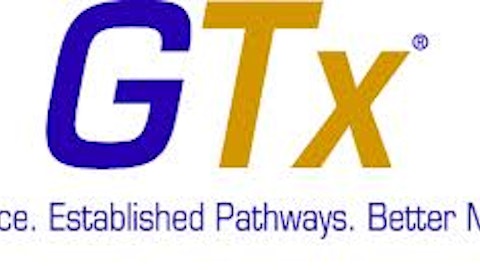On July 9, Intuitive Surgical, Inc. (NASDAQ:ISRG) warned of second-quarter financial results coming in at disappointing levels, although the company does not officially report until July 18.

In respect to profit, the company displays the number coming in 10% below projections when the company formally reports. As a result of this warning being issued by the company, shares fell $80.78, erasing more than $3.2 billion in market value, marking the stock’s largest one-day decline in more than four years.
This warning follows months of negative news reports that have questioned the safety and cost-effectiveness of the company’s cornerstone product, the da Vinci Surgical System, which has revolutionized the industry by allowing surgeons to operate robotic machines in minimally invasive procedures.
Some studies have brought into question the true value of the system, including a February article in the Journal of the American Medical Association which found that robot-assisted hysterectomies did not reduce complications compared to laparoscopic surgery, an alternative minimally invasive type of surgery. In addition, medical guidelines have cautioned performing prostatectomies, a procedure which has pressured the growth in da Vinci procedures. In February, the U.S. Food and Drug Administration announced that it was surveying physicians about adverse events linked to da Vinci procedures, after which the firm issued several recalls of instruments utilized in robotic surgeries.
So what?
So what importance does this warning assume over the medical device industry?
Intuitive Surgical, Inc. (NASDAQ:ISRG) blamed the disappointing results largely on a considerable slowdown in spending by hospitals. The company additionally pinned blame on hospital administrators reeling in spending and more conservative treatment strategies on the part of physicians.
Analysts have confirmed these beliefs in recent months, as hospitals have held back on major purchases amid uncertainty regarding the financial impact of the health-care overhaul law, and since da Vinci robots range from $1.5 to $2.2 million, a significant capital investment is required to obtain only one of these machines.
Goldman Sachs’ analyst David H. Roman described how many health-care providers have put a greater emphasis on cost and return on investment in a research note released on Tuesday. Reports that have been released this year have signaled that patients continue to hold off on hospital procedures, in turn pressuring new capital expenditures.
This industry wide trend impacts the entire medical device market, encompassing Becton, Dickinson and Co. (NYSE:BDX), Medtronic, Inc. (NYSE:MDT), and Baxter International Inc. (NYSE:BAX), all of which have substantial exposure to the medical devices industry.
Now What?
One of the primary culprits causing a slowdown in hospital spending is the health-care overhaul law, which is to be resolved as the new system is adopted and adjusted to. This process is anticipated to take its course and finish by 2014, when new policies are fully implemented. Patients holding back on procedures should also have their questions answered in the near future, allowing greater clarity in the industry.



